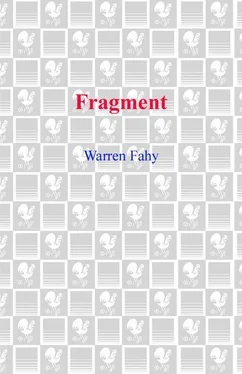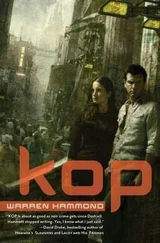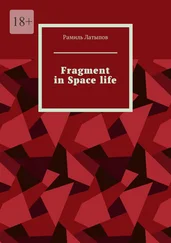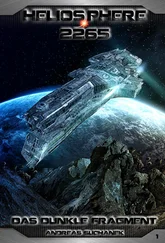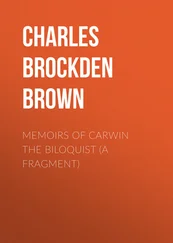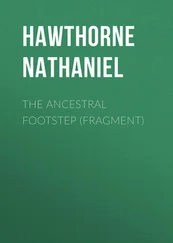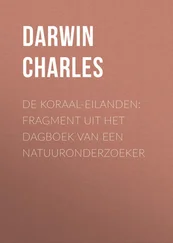Warren Fahy - Fragment
Здесь есть возможность читать онлайн «Warren Fahy - Fragment» — ознакомительный отрывок электронной книги совершенно бесплатно, а после прочтения отрывка купить полную версию. В некоторых случаях можно слушать аудио, скачать через торрент в формате fb2 и присутствует краткое содержание. Жанр: Путешествия и география, на английском языке. Описание произведения, (предисловие) а так же отзывы посетителей доступны на портале библиотеки ЛибКат.
- Название:Fragment
- Автор:
- Жанр:
- Год:неизвестен
- ISBN:нет данных
- Рейтинг книги:5 / 5. Голосов: 1
-
Избранное:Добавить в избранное
- Отзывы:
-
Ваша оценка:
- 100
- 1
- 2
- 3
- 4
- 5
Fragment: краткое содержание, описание и аннотация
Предлагаем к чтению аннотацию, описание, краткое содержание или предисловие (зависит от того, что написал сам автор книги «Fragment»). Если вы не нашли необходимую информацию о книге — напишите в комментариях, мы постараемся отыскать её.
Fragment — читать онлайн ознакомительный отрывок
Ниже представлен текст книги, разбитый по страницам. Система сохранения места последней прочитанной страницы, позволяет с удобством читать онлайн бесплатно книгу «Fragment», без необходимости каждый раз заново искать на чём Вы остановились. Поставьте закладку, и сможете в любой момент перейти на страницу, на которой закончили чтение.
Интервал:
Закладка:
“Those are disk-ants, as Nell here, who discovered them, calls them,” Dr. Cato explained, looking over Pound’s shoulder.
Nell zoomed in with an overhead camera to show a top view of one of the disks on a monitor over the specimen chamber. The one she focused on was waxy-white with a bruisy blue in the center. The “faceup” side of the disk-ant looked like a pie sliced into five pieces. At the center, a shark-toothed mouth grinned across the seams of two slices. On either side of it were dark eyes anyone could take for buttonholes.
Facedown ants were embossed with three spiraling horns radiating from the center on their upper sides.
“You have to give them a real name, Nell,” Dr. Cato said.
“Later. We discovered these ants must not have a queen, Mr. Pound. But like normal ants, they’re pack hunters and scavengers.” Nell looked at the presidential envoy to make sure he was following. “All the creatures on Henders Island have blue copper-based blood, like crabs and squids do. But they also appear to have energy-boosting adaptations. Their mortality rate is extremely high, but their birthrate is so extremely high that it seems to make up for it.”
Nell increased the magnification. She moused an arrow cursor on the screen to indicate the curving edge of a disk-ant. “Those are eyes on the edge, see?”
She looked at Pound, who coughed and nodded.
“Twenty stereoscopic eyes between their twenty arms,” she continued. “The arms retract telescopically. We think their optic nerves have on-and-off switches activated by an inner-ear-like position detector so they can see ahead, behind, or above them as they roll, as if through a zoetrope.”
“A zoetrope?” Pound glanced at his Chronoswiss Pathos wrist-watch, but he couldn’t remember what time zone he was in and all the dials seemed to blur together.
“You know, one of those old rotating novelties,” Dr. Cato said. “If you look at a series of photos through slits as it spins, the photos look like one moving image.”
“Oh right.” Pound removed his glasses and rubbed the steamed-up lenses again. “Keep going.”
“The sophistication of the nervous system is just staggering for an animal of this size,” Dr. Cato explained.
“The size of their ring-shaped brain in proportion to body mass is twice the relative size of a jumping spider’s brain,” Nell added.
“And jumping spiders have the largest brain in proportion to body mass of any known animal,” Dr. Cato said. “When these ants are not rolling, they can walk on either flat side and carry food on top. When rolling, they can carry food on both sides, feeding themselves and their offspring at the same time.”
Pound replaced his glasses. “OK. So?”
Nell panned the camera to a facedown specimen.
“On the ‘tails’ side, you see three Fibonacci spirals radiating from the center toward the edge. One of these spiraling tubes is the birth canal. It feeds vitellin, a kind of primitive yolk, to the unborn juveniles. The other tube is a waste canal. And the third spiral,” Nell zoomed in farther, “is actually a row of babies hitching a ride, lined up like puka shells on a necklace. So each ant you can see is really a colony. The babies go into action when their mothers molt, helping to devour and remove the old exo-skeleton. We haven’t figured out their sex organs yet-but they appear to be hermaphrodites that mate once and give birth constantly for the rest of their lives, using a stored packet of sperm from their mate. They can probably self-fertilize, too, like barnacles.” She looked drily at Pound for a reaction, and found none. “They give birth to ready-to-go miniatures that infest them until they’re large enough to leave home or eat their parent-unless Mom or Dad eats them first. As they grow larger they give birth to larger offspring, which tend to graze on the smaller offspring, striking a tenuous balance-until food becomes scarce. Then, in a heartbeat, it becomes every disk-ant for itself.”
She increased the magnification again, to 100X. On one of the “baby” disk-ants was a similar spiral of miniatures hitching a ride on its back.
“The ant’s offspring give birth, too, down to the size of mites.” She looked at Pound. “And they are constantly infiltrated by other passengers from different disk-ants, which line up according to size automatically.”
“Each individual you see,” Dr. Cato added, “is a colony of thousands, which help one another molt and recycle the components of chitin to the next scale down.”
“And help attack prey and the armies of parasites that protect their prey.” Nell knocked on the thick window.
At the sound, the disk-ants lying on their sides snapped up on their edges. Their centipede-like legs telescoped out and rolled them forward toward the noise of Nell’s rapping knuckles. Some of them launched like Chinese throwing disks. Retracting their legs, they banked off the window, leaving pinpoint nicks in the acrylic. Pound could see many other such nicks on the window. One of the ants stuck: a flood of tiny ants flowed down from the doomed ant’s back and spread out on the window as others stayed behind and instantly began devouring their host.
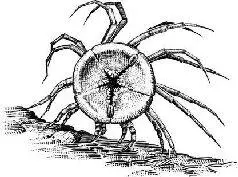
Henders Disk-Ant
Rotaformica hendersi
(after Steele and Benton, Proceedings of the
Zoological Society of Washington , vol. 36: 12-27)
“Jesus,” Pound muttered. They reminded him of the crabs he had acquired while engaging in a particularly ill-advised spring break activity in Fort Lauderdale during his Dartmouth days.
Nell was glad to see him appropriately alarmed. “You should see what they do to army ants. We caught these specimens by extending a hot dog into the jungle on a robotic arm. In ten seconds you couldn’t see the hot dog. Ten seconds later, it was gone. The hot dog practically melted as the nano-ants unloaded from their parents and attacked.”
Nell looked right into Pound’s eyes, touching his arm. “They are omnivorous, Mr. Pound. They graze on the green stuff growing on the island’s slopes and the jungle’s canopy, as well. You came just in time to see another of our tests.”
Pound tried to look impressed, but he just wasn’t. He needed to see the big picture, the full tour. The President had little patience for minutiae, and these creepy disk-ant things were the definition of it. “Don’t give me the labor pains,” POTUS was fond of saying, “just show me the baby!”
“Why can’t we go down to the lower section of the lab and get a look inside the jungle?” Pound said irritably. “I’m here to get a video record of this place to the President three days ago.”
“There’s plenty to see right here, Mr. Pound,” Dr. Cato reminded him.
Pound lowered his voice, glancing at the other scientists working around them. “Doctor, I don’t think you appreciate how much pressure this investigation is under. We need to find out whether this island is a serious biohazard. We can’t maintain a media blackout forever while you’re studying bugs, with all due respect. The rest of the world is getting… antsy.” He glanced at the disk-ants lying dormant again on their sides inside the specimen chamber, and scowled. “And frankly, this is not what the United States needs from a P.R. point of view right now.” He glared at Dr. Cato, whispering, “Nobody’s happy about us monopolizing this situation!”
“I never said we should keep other countries out!” Dr. Cato sputtered indignantly.
Pound spoke with urgent softness to both of them now: “The President has decided that we need to preserve a military option, which quickly becomes impossible with other countries involved. We’ve already included British scientists, since the Brits have a tenuous claim on this island, but any more than that and no matter how dangerous the life forms here turn out to be, the problem will be uncontainable. We need to know what’s going on in there. I don’t understand why we can’t go down to the other end of the lab and get a good look inside that jungle for the President.”
Читать дальшеИнтервал:
Закладка:
Похожие книги на «Fragment»
Представляем Вашему вниманию похожие книги на «Fragment» списком для выбора. Мы отобрали схожую по названию и смыслу литературу в надежде предоставить читателям больше вариантов отыскать новые, интересные, ещё непрочитанные произведения.
Обсуждение, отзывы о книге «Fragment» и просто собственные мнения читателей. Оставьте ваши комментарии, напишите, что Вы думаете о произведении, его смысле или главных героях. Укажите что конкретно понравилось, а что нет, и почему Вы так считаете.
